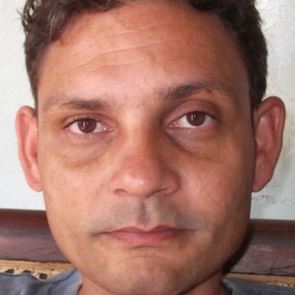Cuban human rights defender prevented from travelling to Ireland
Niober had been planning and looking forward to this trip for months. It took him almost two days to reach Havana international airport from his town in Guantanamo, Cuba, but he still arrived well before his flight. He'd budgeted in plenty of time, knowing security is tight and checkpoints are common across the island. At the airport, just before the final security line, an officer from the Ministry of Interior quietly took him to a side. The officer told Niober he could not board the plane. He gave no explanation, but Niober was not surprised: this is what Cuban human rights defenders regularly have to go through.
Niober García Fournier was traveling to the Dublin Platform for Human Rights Defenders, a three-day event gathering more than 100 at-risk activists from around the world. He had been invited to share his experience with other human rights defenders, speak about the challenges he faces in Cuba, and learn new peaceful resistance and protection strategies from fellow human rights defenders living under oppressive regimes.
Niober is an independent journalist and a representative of EYE on CUBA, a platform which publishes reports on human rights abuses and provides independent information about what is happening in Cuba. EYE on CUBA works through a network of activists all over the country. The network informs international community and puts pressure on Cuban authorities to reform. The organisation also run human rights reporting trainings.
Although the Cuban authorities have never issued an official travel ban against him, Niober has been prevented from travelling several times. The human rights defender has also been detained, had his possessions confiscated, and was once stabbed on the street -- all as a result of his human rights work.
Leaving Cuba is particularly tricky for human rights defenders who live in Guantanamo province. There are several checkpoints along the 525 miles between Guantanamo and Havana. Most of the time, to avoid being stopped, Niober has to cross the provincial border by foot or horse and then travel for 20 to 30 more hours by various modes of transportation. Although he was careful not to be followed, someone – most likely a state official - knew he was leaving his town and sent him a threatening message: “We decided to let you go and cross the border, but you shouldn’t go near the airplanes”.
These types of threats and harassment are not unusual for human rights defenders in Cuba. Despite Cuba's restoration diplomatic ties with the United States in 2015, which saw the government release dozens of political prisoners, the situation for human rights defenders on the island remain dire. The Cuban government still controls all major media outlets, and those who advocate for freedom of expression are targeted. Since 2015, short-term detentions of human rights defenders, journalists and critics of the government appear to have increased in frequency, though long-term detentions appear to have decreased.
Speaking at an event at the European Parliament in Brussels this year, on one of the few occassions he was allowed to leave the country, Niober said: “The relative improvement in Cuba-USA and Cuba-EU relations is in reality a curtain that has helped to hide the growing amount of repression against Cuban civil society”.
Despite the challenges and harassment he and his colleagues face, Niober is still vocal about the criticisms levied by the Cuban people and fellow rights defenders against their government.

